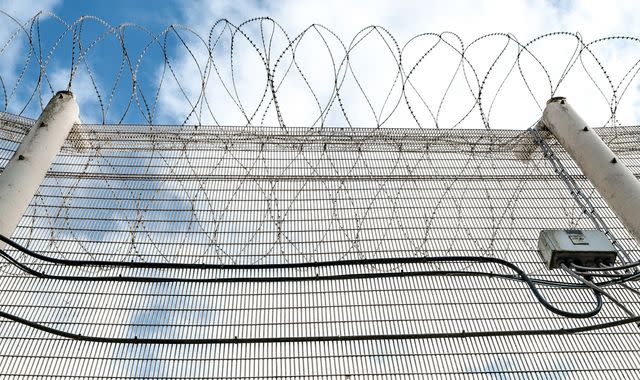House of Lords urged to help 'end the torture' of indefinite IPP sentences

Campaigners and families have urged members of the House of Lords to back calls for a resentencing of offenders who are serving an "inhuman" sentence that was abolished more than a decade ago.
On Tuesday, peers will debate amendments to the victims and prisoners bill, including one tabled by Baroness Fox of Buckley, which asks that the government resentence those still serving controversial sentences of imprisonment for public protection (IPP).
She has received the support of Lord Blunkett, the former Labour home secretary who introduced IPPs in the 2003 Criminal Justice Act but feels "deep regret" over their impact on inmates and their families.
Implemented in 2005 and abolished in 2012, IPP is a prison sentence with no release date that was intended for serious violent and sexual offenders who posed a significant risk of serious harm to the public but whose crimes did not warrant a life term.
Although the government's stated aim was public protection, concerns quickly grew that IPP sentences were being applied too broadly and catching more minor offenders - with many serving time in prison much longer than their initial term.
Politics latest: Nigel Farage could 'devastate' Tories
Cherrie Nichol's brother Aaron Graham was 26 years old when he was sentenced to two years and 124 days for committing grievous bodily harm in 2005. He remains in prison 18 years later.
Ms Nichol urged the House of Lords to get behind amendments for resentencing, saying it would allow her family to "go forwards and make plans".
She told Sky News: "I went to see my brother two weeks ago and I didn't recognise him as he was so ill with crippling mental health brought on by this sentence.
"This severely traumatised me. If a re-sentencing went ahead, it would mean a plan of action for the families affected like me and Aaron. It would also mean they would get the help they need."
She added: "Aaron and many are suffering mentally from this traumatic, hopeless IPP. You can't fix the broken with no plan."
The government has so far resisted calls to resentence the remaining IPP prisoners - citing concerns for public safety - despite parliament's own Justice Select Committee urging it to do so.
And last month, Alice Jill Edwards, the UN's leading torture expert, told Sky News there was "no justification for the continued indefinite detention of so many individuals often for relatively minor crimes".
The most recent statistics from the MoJ show 2,852 IPP prisoners remain behind bars, including 1,227 who have never been released.
Ms Edwards also pointed to the high rate of suicide and mental illness among IPP detainees. Ninety offenders serving an IPP sentence are known to have taken their own lives in England and Wales since 2003, according to campaign group Ungripp.
Baroness Fox's amendment, if passed, would implement the justice committee's recommendation that there should be a resentencing exercise for everyone on IPP sentences, and that an expert committee be set up to advise it on how the resentencing should be carried out.
A spokesperson for Ungripp said: "We hope that during the debate consideration is given to the impact IPP sentences are having on those serving it. 2023 saw the highest number of suicides in one year since the sentence began.
"The only way to put an end to the torture of IPP is to consider significant change that will impact both those living in the community and those stuck in prison serving IPP sentences."
Henry Rossi, IPP campaigner and the Founder of The Institute of Now, said: "These amendments present a crucial opportunity to put right a mistake which has violated British values and standards of law for over 20 years.
Read more:
Ministers using 'misleading' claims to justify indefinite detention, says UN torture expert
Cost of keeping people in prison on indeterminate IPP sentences tops £1bn since 2012
"I urge peers to do your bit to help end the suffering - to support these amendments and commit to pushing forward meaningful reform on IPP.
"Make no mistake, this is a chance to end a system of psychological torture which has already cost over 100 people their lives... not to mention the thousands more whose mental health has been destroyed because of IPP."
A Ministry of Justice spokesperson said: "We have reduced the number of unreleased IPP prisoners by three-quarters since we scrapped the sentence in 2012, with a 12% fall in the last year alone where the Parole Board deemed prisoners safe to release.
"We have also taken decisive action to curtail licence periods and continue to help those still in custody to progress towards release, including improving access to rehabilitation programmes and mental health support."


